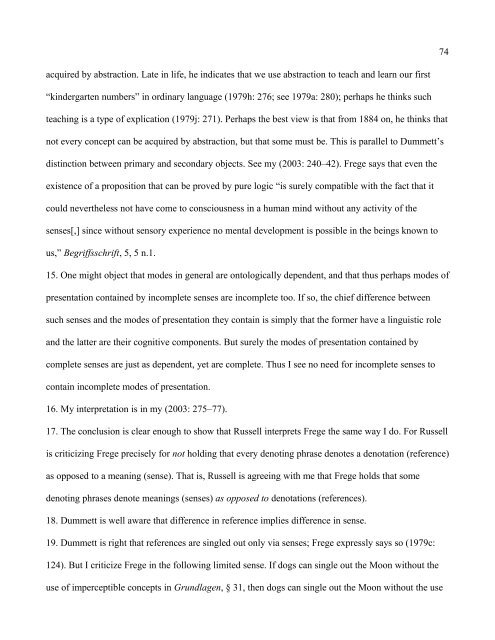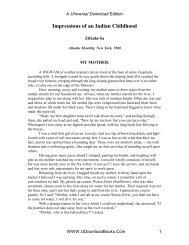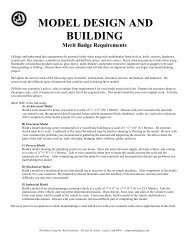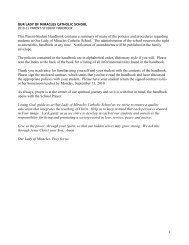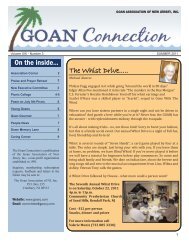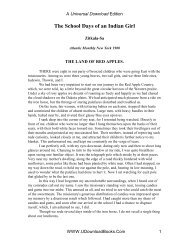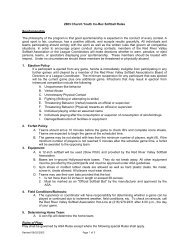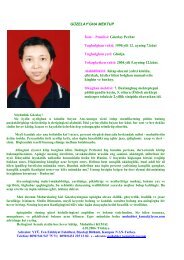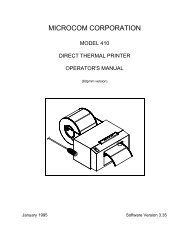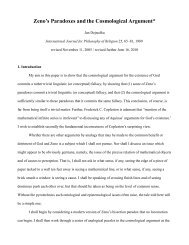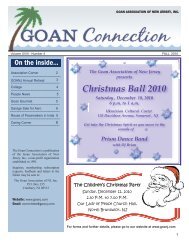Dummett's Backward Road to Frege and to Intuitionism - Tripod
Dummett's Backward Road to Frege and to Intuitionism - Tripod
Dummett's Backward Road to Frege and to Intuitionism - Tripod
You also want an ePaper? Increase the reach of your titles
YUMPU automatically turns print PDFs into web optimized ePapers that Google loves.
acquired by abstraction. Late in life, he indicates that we use abstraction <strong>to</strong> teach <strong>and</strong> learn our first<br />
“kindergarten numbers” in ordinary language (1979h: 276; see 1979a: 280); perhaps he thinks such<br />
teaching is a type of explication (1979j: 271). Perhaps the best view is that from 1884 on, he thinks that<br />
not every concept can be acquired by abstraction, but that some must be. This is parallel <strong>to</strong> Dummett’s<br />
distinction between primary <strong>and</strong> secondary objects. See my (2003: 240–42). <strong>Frege</strong> says that even the<br />
existence of a proposition that can be proved by pure logic “is surely compatible with the fact that it<br />
could nevertheless not have come <strong>to</strong> consciousness in a human mind without any activity of the<br />
senses[,] since without sensory experience no mental development is possible in the beings known <strong>to</strong><br />
us,” Begriffsschrift, 5, 5 n.1.<br />
15. One might object that modes in general are on<strong>to</strong>logically dependent, <strong>and</strong> that thus perhaps modes of<br />
presentation contained by incomplete senses are incomplete <strong>to</strong>o. If so, the chief difference between<br />
such senses <strong>and</strong> the modes of presentation they contain is simply that the former have a linguistic role<br />
<strong>and</strong> the latter are their cognitive components. But surely the modes of presentation contained by<br />
complete senses are just as dependent, yet are complete. Thus I see no need for incomplete senses <strong>to</strong><br />
contain incomplete modes of presentation.<br />
16. My interpretation is in my (2003: 275–77).<br />
17. The conclusion is clear enough <strong>to</strong> show that Russell interprets <strong>Frege</strong> the same way I do. For Russell<br />
is criticizing <strong>Frege</strong> precisely for not holding that every denoting phrase denotes a denotation (reference)<br />
as opposed <strong>to</strong> a meaning (sense). That is, Russell is agreeing with me that <strong>Frege</strong> holds that some<br />
denoting phrases denote meanings (senses) as opposed <strong>to</strong> denotations (references).<br />
18. Dummett is well aware that difference in reference implies difference in sense.<br />
19. Dummett is right that references are singled out only via senses; <strong>Frege</strong> expressly says so (1979c:<br />
124). But I criticize <strong>Frege</strong> in the following limited sense. If dogs can single out the Moon without the<br />
use of imperceptible concepts in Grundlagen, § 31, then dogs can single out the Moon without the use<br />
74


